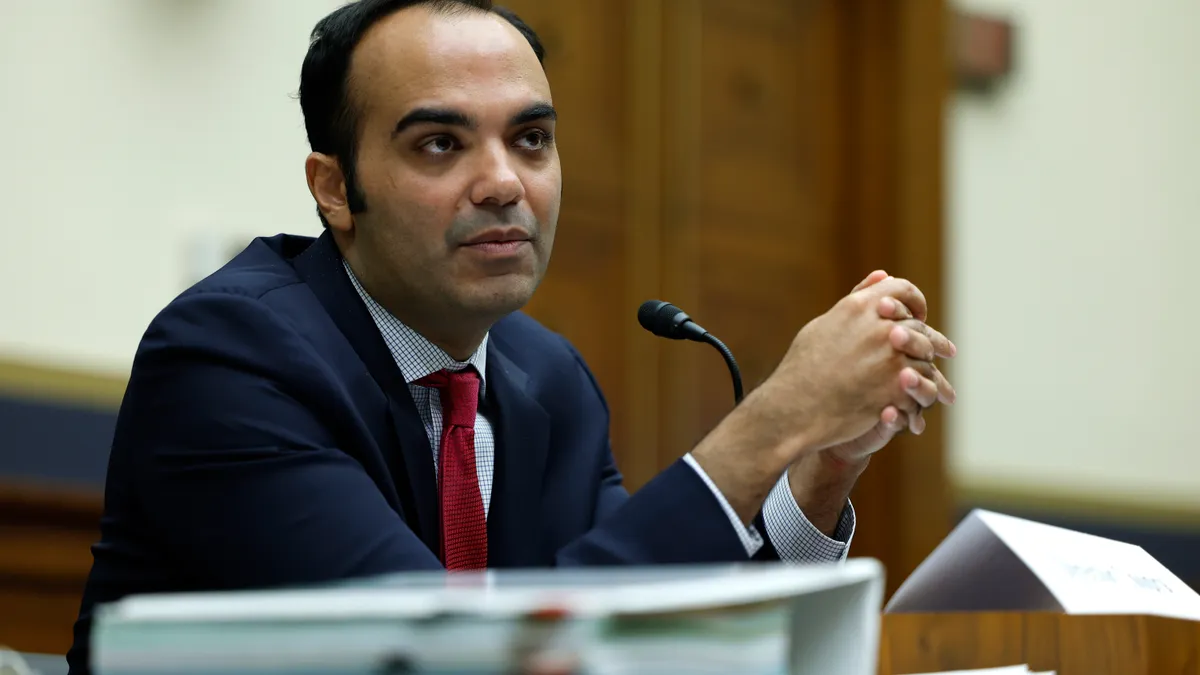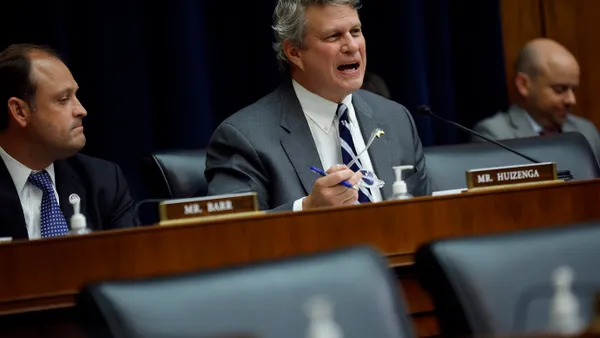Dive Brief:
- The Consumer Financial Protection Bureau signaled last month that it plans to issue guidance soon on how consumer lending laws apply to earned wage access, the growing business of enabling workers to tap their wages in advance of their regular payday.
- “Given the many developments in this market, the CFPB plans to issue further guidance to provide greater clarity concerning the application of federal law to income-based advance products,” the agency said in a Dec. 1 website post commenting on the California Department of Financial Protection and Innovation’s move to register and examine companies providing such EWA services.
- The CFPB wrote to the California agency in November backing state licensing and oversight of financial products, including EWA services.
Dive Insight:
The CFPB has been weighing its approach to oversight for earned wage access for several years, issuing guidance during the Trump administration that has been revised to some degree under the Biden administration.
To the extent that the CFPB, under the leadership of Biden appointee Director Rohit Chopra, expects to weigh in on earned wage access, it would likely be interested in doing so in the coming months, given 2024 is an election year that could result in a new administration next year.
The federal agency’s guidance so far has turned on the extent to which EWA services are addressed under existing laws, such as the Truth in Lending Act, and related regulations. The issue is complicated to some degree by the different approaches extended by dozens of different EWA providers. The key differences relate to whether or not the providers partner with employers and to what extent they charge employees fees.
In its letter commenting on the California agency’s proposal to require registration and examination of what that state refers to as income-based advances made available by the EWA providers, the CFPB underscored its support for states imposing oversight of such services in the interest of protecting consumers. Specifically, the CFPB noted that while EWA providers aren’t required to hold federal licenses, the bureau welcomes state oversight in this area.
“The CFPB believes that it is consistent with this longstanding practice to subject providers of income-based advances marketed as ‘earned wage access’ to state oversight – as providers of other income-based advance products, such as payday loans that have long been offered in some states, are,” the federal agency said in its Nov. 27 letter.
Lawyers who follow such payments issues are gearing up for the coming CFPB guidance. In commenting on the CFPB’s letter to the California agency, the law firm Ballard Spahr pointed out two key takeaways: state supervision of EWA services is “critically important” and such income-based advances would be considered loans under the California Financing Law, with any gratuities for fees for expediting payments considered as “charges.”
The CFPB suggested in its letter to the California agency that it’s intent on ensuring oversight of the EWA industry, specifically with respect to making sure providers are transparent about the costs of the services. “Rigorous supervision of all income-based advance products helps to ensure that the label of a product does not determine how providers are held accountable, or the extent to which consumers are protected, under the law,” the CFPB said in its four-page letter to the state.
Other states, including New Jersey Connecticut and Nevada, have also sought to address earned wage access services.
Some companies, including DailyPay, have argued against referring to EWA services as loans and subjecting them to lending laws. Characterizing such services “as a loan or credit product displays a fundamental misunderstanding of the sector and could have vast negative consequences for employees,” a spokesperson for DailyPay said in an email.











